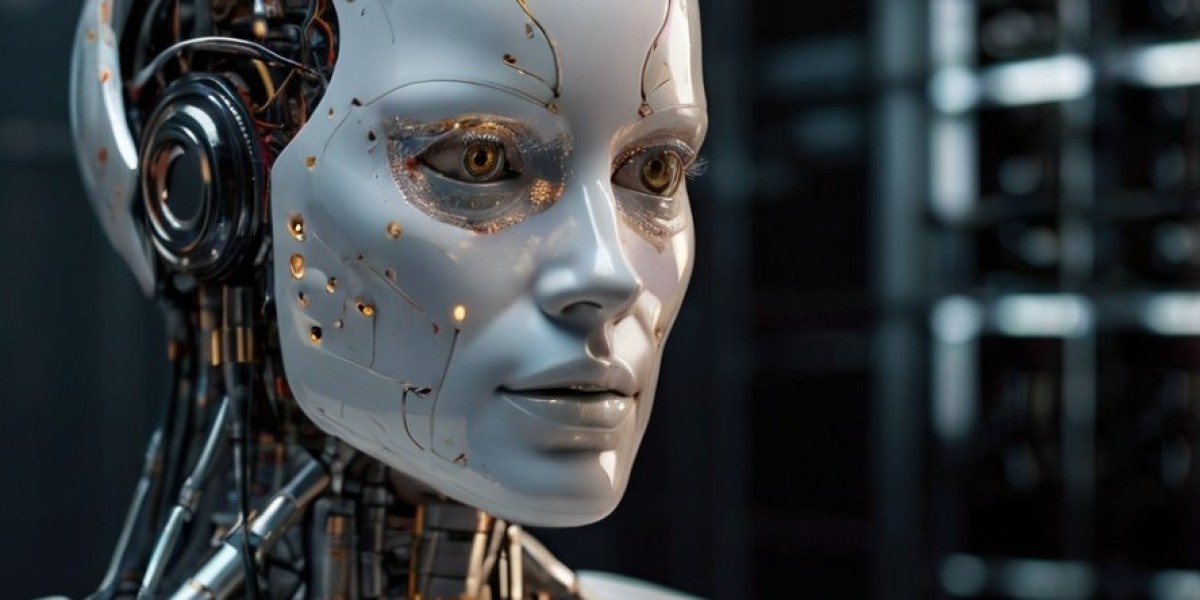Introduction
The advent of artificial intelligence (AI) has led to significant changes across various sectors, with content creation standing out as a prominent field undergoing transformation. As businesses, creators, and consumers increasingly leverage AI tools to generate text, images, videos, and more, the landscape of content production is evolving. This article presents an observational study examining the methods, benefits, challenges, and implications of AI-assisted content creation, drawing from various environments where AI content generation tools are applied.
The Landscape of AI Content Creation
In recent years, AI content creation tools such as OpenAI's GPT-3, Jasper, Canva's Magic Write, and DALL-E have skyrocketed in popularity. These tools boast the capability to produce coherent written text, generate high-quality images, and even create video content based on user prompts. The nature of AI-assisted content creation can range from fully autonomous generation to collaborative efforts where human creativity is combined with AI efficiency.
Types of AI Content Creation Tools
AI content creation tools can be broadly categorized into text generation, image synthesis, audio production, and video creation.
- Text Generation: Tools like OpenAI's GPT-3 are capable of producing written content ranging from articles and blog posts to poetry and stories. They can imitate various genres, tones, and styles, making them valuable resources for marketers, authors, and educators.
- Image Synthesis: Programs such as DALL-E generate images based on textual descriptions provided by users. This capability allows creators to visualize concepts quickly without relying on traditional graphic design skills.
- Audio Production: AI tools can also synthesize music and voiceovers. For instance, platforms like Aiva or Descript allow users to generate background scores or narrate scripts using AI-generated voices.
- Video Creation: Tools like Synthesia leverage AI to create videos where avatars speak text provided by the user, enabling quick and engaging content production for educational and marketing purposes.
Observational Insights from the Field
To gain a comprehensive understanding of AI content creation, we conducted observational research across several domains, including digital marketing, education, and creative writing. Our findings reflect user experiences, preferences, and the broader implications of AI in these fields.
User Experiences and Engagement
Through our observations, we recognized that user engagement with AI content tools varies depending on the context in which they are employed. In digital marketing, marketers welcome AI tools as time-savers that enhance productivity. For instance, during a campaign planning session, a marketing team utilized GPT-3 to generate ad copies and blog ideas rapidly. Participants reported that the ability to generate multiple variations of content in a short period allowed for more agile brainstorming sessions and improved campaign creativity.
Similarly, educators employing AI tools like Canva's Magic Write found that these technologies enriched the teaching process. Teachers created engaging lesson materials and graphics, stimulating student interest. Observationally, one teacher showcased an AI-generated infographic about renewable energy sources, which elicited positive feedback and sparked discussions among students.
Conversely, in the realm of creative writing, some authors exhibited skepticism towards AI content generation. While some embraced AI as a collaborator, others expressed concerns about the authenticity of AI-generated narratives. Observational moments revealed a debate within writing communities about the implications of AI on originality and the creative process. Writers engaged in heated discussions on forums, weighing the advantages of inspiration and efficiency against the risk of homogenizing content.
Benefits of AI Content Creation
Increased Efficiency and Productivity
One of the most significant benefits observed was the notable impact of AI content creation on efficiency and productivity. Users reported that with reduced time spent on drafting and editing, they could focus more on strategic thinking, creativity, and innovation. A digital marketing professional shared that generating content ideas with AI freed up hours of work, enabling her team to manage multiple campaigns simultaneously.
Enhanced Creativity
Interestingly, many users described the role of AI as a source of inspiration rather than a replacement for human creativity. In interviews, creators stated that AI-generated suggestions often led to unexpected and thought-provoking ideas. A graphic designer described how using DALL-E for initial concept visuals freed her from creative blocks, allowing her to refine and expand upon generated ideas. Observationally, this synergy between human creativity and AI was much appreciated among many users.
Cost-Effectiveness
Organizations utilizing AI content creation reported substantial cost savings. Hiring freelance content creators or teams can be expensive, and AI tools present a more affordable alternative. A startup founder mentioned how employing AI for generating initial drafts and marketing material allowed her to allocate resources toward other crucial business operations without sacrificing quality.
Challenges and Concerns
Quality Control
While many users praised the efficiency of AI-generated content, concerns regarding the quality and accuracy of AI outputs were prominent. Observationally, instances of inaccuracies and factual errors were noted in AI-generated texts, particularly when dealing with niche topics or current events. Users recognized the importance of human editing as a necessary step in ensuring content quality.
Ethical Considerations
The rise of AI in content creation brought forth ethical dilemmas. Copyright issues emerged as a hot topic in discussions, especially regarding AI-generated works based on existing content. Observers noted the prevalence of discussions in writing and artistic communities about the line between inspiration and plagiarism when using AI-generated content.
Dependency on AI
Another significant concern was users' increasing dependency on AI tools, which could stifle creativity and independent thinking over time. Some observers echoed this sentiment, warning that over-reliance on AI-generated content could diminish the distinctive voice and nuanced understanding that human creators bring to their work.
Future Implications of AI Content Creation
As AI content creation continues to advance, it is essential to consider its future implications for various domains. The potential for AI to revolutionize industries is vast, but critical considerations regarding ethics, quality, and dependency remain pivotal.
The Evolving Role of Creatives
The role of creatives may evolve from sole content creators to curators and collaborators. As AI tools become more integrated into creative workflows, human creators may find themselves focusing on enhancing ideas generated by AI rather than traditional content creation methods.
Education and Training
Educational institutions will likely need to adapt to the changing landscape of content creation. Teaching students how to effectively leverage AI tools while maintaining critical thinking and creativity will be essential for preparing them for future careers that may heavily involve AI technology.
Regulation and Guidelines
The rapid growth of AI content creation necessitates ongoing discussions around regulation and industry guidelines. Establishing ethical boundaries around content ownership, usage rights, and proper attribution will be vital to ensure fair practices within creative industries.
Conclusion
The landscape of AI content creation is characterized by innovation, efficiency, and complexity. Users across various fields experience both the advantages and challenges of incorporating AI into their workflows. While efficiency gains and enhanced creativity are significant contributors to the appeal of these tools, concerns regarding quality, ethical implications, and dependency warrant careful consideration.
 As we move forward, continuous dialogue among stakeholders—creators, users, educators, and policymakers—will be critical to navigate the evolving relationship between AI technology and content creation. Ultimately, the goal should be to harness AI's potential to complement human creativity, ensuring a future where technology enhances rather than detracts from the artistic and intellectual endeavors of individuals.
As we move forward, continuous dialogue among stakeholders—creators, users, educators, and policymakers—will be critical to navigate the evolving relationship between AI technology and content creation. Ultimately, the goal should be to harness AI's potential to complement human creativity, ensuring a future where technology enhances rather than detracts from the artistic and intellectual endeavors of individuals.








